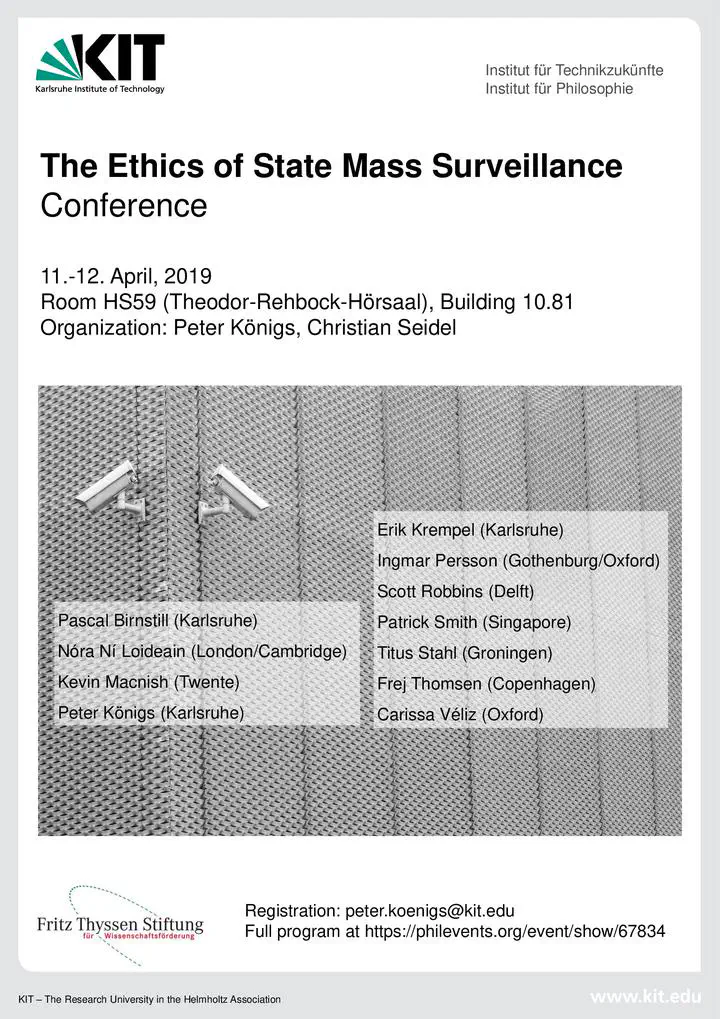The Ethics of State Mass Surveillance
An interdisciplinary conference, funded by the Fritz Thyssen Foundation

In the aftermath of 9/11, many governments have increased their surveillance efforts in an attempt to fight organized crime and terrorism. The current rise of state mass surveillance has been facilitated by the internet, advancements in data-processing, intelligent face recognition and various other new technologies. The unprecedented extent to which even liberal democracies monitor their citizens raises pressing moral questions, especially concerning the relative value of privacy and security. On the one hand, many scholars have stressed the importance of privacy both for the flourishing of individuals as well as for the functioning of a democratic society as a whole. And it is arguable that state mass surveillance constitutes a serious infringement of citizens’ privacy. On the other hand, extensive and sophisticated surveillance efforts hold the promise of greater security, the provision of which is among a state’s primary purposes. Indeed, it has even been suggested that increased surveillance is imperative to prevent catastrophes of a global scale (catastrophic risks), such as terrorist strikes with nuclear or biological weapons of mass destruction.
The workshop seeks to advance our understanding of the ethical significance of state mass surveillance, addressing such questions as:
- What, if anything, is valuable about privacy and freedom from surveillance by the state?
- How to strike a balance between security and privacy?
- Is there a libertarian/liberal/neo-republican/communitarian/critical-theory/etc. case for or against state mass surveillance?
- Do we need more surveillance to enable states to prevent catastrophic risks?
The workshop will also bring together philosophers with experts from other fields such as law and computer science, allowing for discussions of the legal dimension of state mass surveillance and of questions regarding its technical feasibility.
The workshop is funded by the Fritz Thyssen Foundation.